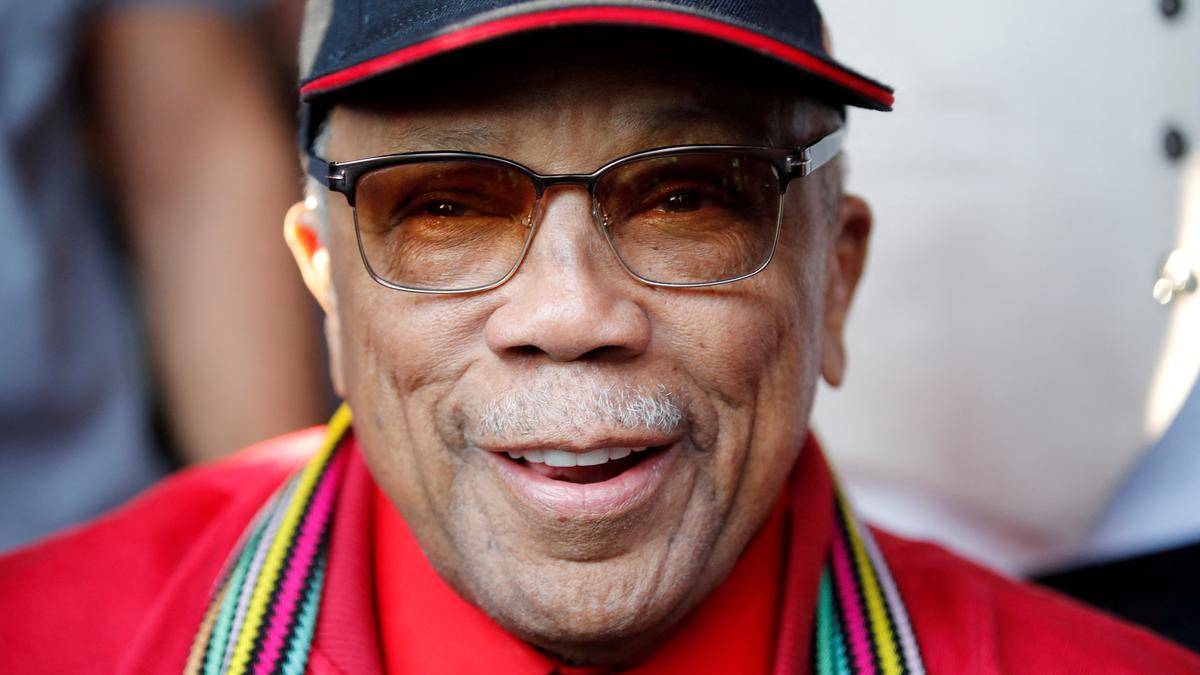
Quincy Jones, the visionary composer, producer, and musical architect whose groundbreaking work redefined genres and shaped the soundtrack of the latter half of the 20th century, has died at the age of 91. His publicist, Arnold Robinson, confirmed that Jones passed away peacefully on Sunday night at his residence in the distinguished Bel Air neighborhood of Los Angeles, his family by his side during his final moments.
The Jones family released a heartfelt statement expressing their loss: “Tonight, with full but broken hearts, we must share the news of our father and brother Quincy Jones’ passing. And although this is an incredible loss for our family, we celebrate the great life that he lived and know there will never be another like him.”
From his humble beginnings on the South Side of Chicago, where he once ran with street gangs, Quincy Jones rose to become a towering figure in show business. He broke racial barriers in Hollywood, establishing himself as one of the first Black executives to achieve unparalleled success in the industry. His musical catalog is a collection that captures some of the most profound moments of American rhythm and melody. Over the decades, Jones collaborated with a spectrum of artists—making it almost a given that any music aficionado owned at least one album bearing his imprint.
His talent and charisma earned him the company of presidents, global diplomats, film giants, and fellow musicians. He toured with legends like Count Basie and Lionel Hampton, orchestrated timeless albums for giants like Frank Sinatra and Ella Fitzgerald, and composed unforgettable scores for cinematic and television classics such as “Roots” and “In the Heat of the Night.” Not only did Jones orchestrate some of the world’s most meaningful musical moments, he also played a pivotal role in organizing President Bill Clinton’s inaugural celebrations and supervised the production of “We Are the World,” the iconic 1985 anthem aimed at fighting famine in Africa. Lionel Richie, one of the song’s writers and performers, dubbed Jones “the master orchestrator” for his ability to bring diverse artists together.
Jones’ legacy encompasses a career that began in the age when music records spun at 78 rpm and transcended into the digital age.
. Perhaps the most celebrated highlight of his career is his partnership with Michael Jackson on his record-breaking albums: “Off the Wall,” “Thriller,” and “Bad.” Each album was a testament to Jones’ versatility and creative foresight, which helped propel Jackson from a former child star to the universally crowned “King of Pop.” The soundscapes they created, especially on tracks like “Billie Jean” and “Don’t Stop ‘Til You Get Enough,” were a fusion of disco, funk, rock, pop, R&B, and jazz, introducing African chants into the mainstream and redefining global music culture. One of the defining moments of their collaboration was Jones’ recruitment of Eddie Van Halen for a striking guitar solo on “Beat It” and Vincent Price’s spine-chilling monologue on “Thriller.”
“Thriller” itself sold more than 20 million copies in its debut year, tussling with the Eagles’ “Greatest Hits 1971-1975” for the title of the best-selling album in history. Quincy Jones famously remarked to the Library of Congress in 2016, “If an album doesn’t do well, everyone says ‘it was the producer’s fault’; so if it does well, it should be your ‘fault,’ too. The tracks don’t just all of a sudden appear. The producer has to have the skill, experience, and ability to guide the vision to completion.”
The achievements of Quincy Jones are as extensive as they are impressive. His 2001 autobiography, “Q,” chronicles pages of awards and accolades amounting to an overwhelming list: 28 Grammys, an honorary Academy Award, and an Emmy for his work on “Roots.” French prestige was adorned upon him with the Legion d’Honneur, Italy offered the Rudolph Valentino Award, and he received an American cultural tribute from the Kennedy Center. His life was encapsulated in the 1990 documentary “Listen Up: The Lives of Quincy Jones,” a 2018 film directed by his daughter Rashida Jones, and his autobiography became a bestseller.
Quincy Jones leaves behind an indelible mark on the world of music and entertainment, celebrated not only for the heights he reached but for the doors he opened along the way.












